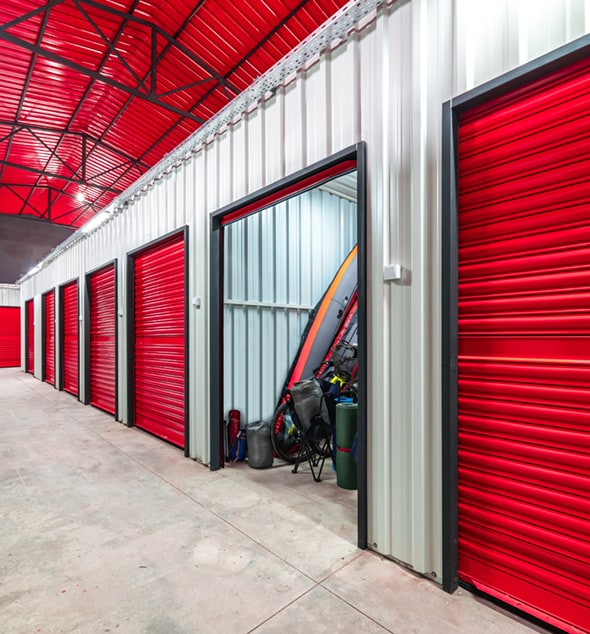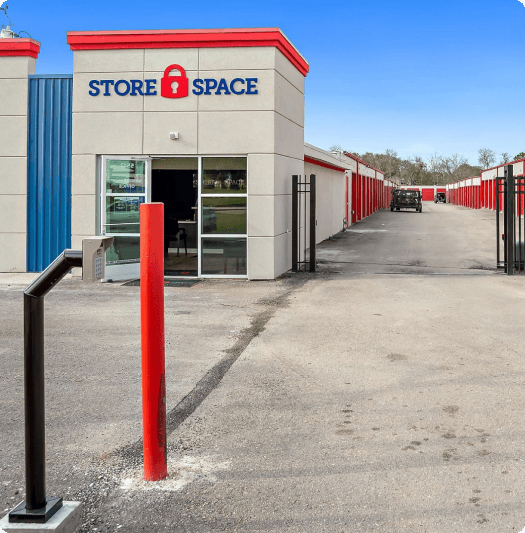When is the Best Time to Rent a Storage Unit?

If you’re like us, you’ve asked yourself this question: “when is the best time to rent a storage unit?” We’ll give you a hint: it’s the special time of year when you sit by a warm fireplace, drink hot chocolate, and watch as snowflakes fall outside and cover the ground with a blanket of quiet.
That's right—the best time of year to rent a storage unit is in winter.
Yep, you read that right. It may not seem like snowy (or at least “chilly” for those of you in milder climates) winter would be the perfect time to make trips to your storage unit and carry boxes around, but if you want the best deals and the biggest variety of amenities and options, it’s often the way to go.
Here are a few reasons why winter is the best time to rent a storage unit, including some advantages and disadvantages of renting a unit during other seasons.
Why is Winter the Best Time to Rent a Storage Unit?
Here’s the scoop (even though the cold season isn’t exactly the most popular time for ice cream either)—winter is the time to rent storage because in the self-storage industry, winter is the slow season. The demand for storage units can be lower this time of year, which is exactly why you should rent a unit during the winter.
1. More savings
You don’t have to be an economics major to understand the idea of supply and demand. When there’s more supply than demand, rates tend to be lower. Because of this, you’ll most likely find better rates on a storage unit in the slow season, i.e., winter.
2. More units
Fewer people are renting storage units during the slow season, which means there are more options to choose from. So, if you’re storing sensitive items like wood, furniture or electronics, you’re much more likely to secure a climate-controlled storage unit if you rent during the winter. You’ll also have a greater chance of getting the other amenities that might be important to you, such as drive-up storage, first-floor access and even vehicle storage options.
A Few Things to Keep in Mind About Renting a Storage Unit in the Winter
Even though winter is the best time to rent a storage unit, there are some things to consider when renting during this time of the year.
1. Weather conditions
You can probably see where this is going (unless it’s foggy). If you live in a state that stays warm year-round, chances are you don’t need to worry about difficult weather conditions. But, if you’re used to cold, snowy winters, harsh weather is something to take into consideration. You don’t want to make trips to your storage unit when the roads are bad, or risk carrying boxes to your car while the ground is icy.
Pro tip: Check the weather conditions and move into your unit when the weather will be mild. (There are fair-weather days in the winter all the time.) Make loading items in your unit easier with a drive-up storage unit, or find a facility with a covered loading bay. Many Store Space facilities have these amenities!
Bonus tip: If you need a storage unit because of an upcoming move, check out this blog with winter moving tips.
2. Climate-control is a must
We know heat and humidity can damage sensitive items, but freezing temperatures can be damaging as well. It is a good idea to invest in a climate-controlled storage unit to protect your stored items from the cold weather.
Pro tip: You’ll also want to take extra care when packing your items for winter. Here are a few ideas to keep your clothes in top condition while in winter storage.
Can You Rent a Unit During Other Seasons?
Even though winter might give you the best opportunity to rent a storage unit, you can rent a unit year-round (you’re not forbidden to rent a unit in the month of July, for example). Even so, here are a few things to keep in mind when renting during other times of the year.
Autumn
It’s not a bad idea to rent a storage unit in the fall. Most likely rates are lowering before the slow season. But it may be a challenge if you’re looking for vehicle storage. Fall is a popular time to seek vehicle storage solutions because summer fun is over, and many people put their toys away (including cars, motorcycles, RVs and boats) when the weather gets cooler.
Summer
Summer is a busy time for self-storage. This is a popular moving season because of warm weather, vacation from school, and college students moving during summer break. It can be a great time to secure vehicle storage since most people wait until fall to start looking.
Spring
Spring is often the busiest time to rent a storage unit. Peak moving season starts in spring, which means it’s the peak season for self-storage! Also, people are looking to declutter their homes with spring cleaning. While everyone is securing more space, cleaning out their closets, and decluttering, you’re less likely to find your ideal storage solution.
FAQs: When is the Best Time to Rent a Storage Unit?
Q: When is the best time to rent storage?
A: The best time to rent a storage unit is in the winter. This is because demand for storage units is generally lower at that time of year. Read the blog above for more information, along with some advantages and disadvantages of renting a unit during different times of the year.
Q: How do I get the best deal on a storage unit?
A: If you want to get the best deal on a storage unit, the first thing you need to do is research! Compare rates and amenities of nearby storage facilities to find the best fit. You can also rent a unit during the winter to save some money.
Q: Can you negotiate storage unit prices?
A: No, you can’t negotiate storage unit prices. But not to worry, Store Space shops the competition to ensure you get the lowest rates around. So, there is no need to negotiate when you’re already getting the best deal!
Q: Should I rent a storage unit?
A: That depends, but everyone could use more space from time to time—whether you need a spot for seasonal storage, extra furniture, or business inventory. There are many ways you can benefit from self-storage, just check out our storage guide for more information.
Q: What should you not store in a storage unit?
A: There are a few things you should not keep in a storage unit. Don’t store flammable or combustible items, toxic materials, stolen goods, unregistered or uninsured vehicles, weapons, perishables or live plants in storage units. If you have more questions about what you can and cannot store, contact your facility manager.
Wrapping Up: The Best Time to Rent a Storage Unit
Hopefully, this blog has answered when the best time to rent a storage unit is. While you’re ice skating, skiing or trying to get those holiday tunes out of your head, don’t forget to find self-storage! Looking for more storage unit insider knowledge? Check out 10 storage unit tips and tricks you need to know.
You can complete a Touchless Rental online or by phone or visit any Store Space facility to find the perfect storage unit! Locate your nearest location with our storage location finder.







